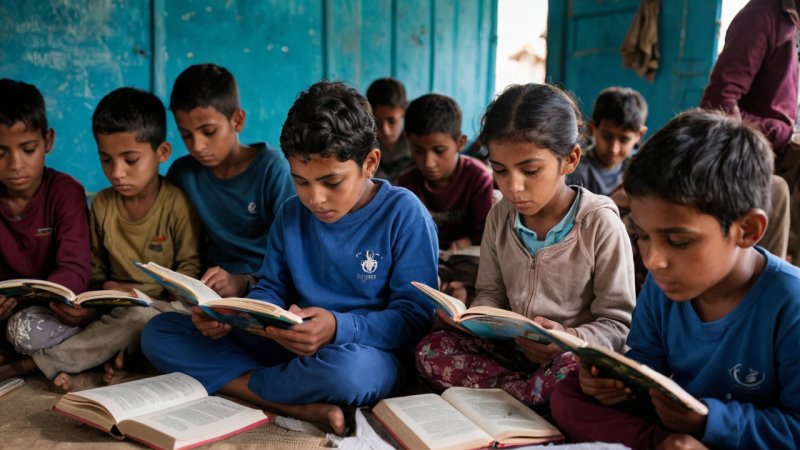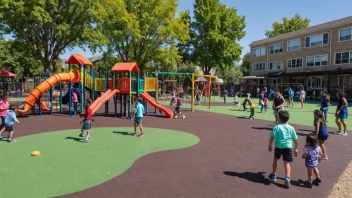In a world increasingly marked by crisis and uncertainty, the fundamental right to education often hangs in the balance. Whether it’s due to armed conflict, natural disasters, or economic downturns, millions of children and adults find themselves deprived of the opportunity to learn and grow. Literacy is not just a skill; it is a gateway to empowerment and a critical tool for rebuilding lives and communities. This article explores the importance of supporting literacy during times of crisis and offers practical ways individuals and organizations can contribute to this vital cause.
The Importance of Literacy in Crisis Situations
Literacy is a cornerstone of personal and community development. During times of crisis, the ability to read and write becomes even more crucial. It enables individuals to access information about safety, health, and resources. For children, literacy is essential for their cognitive development and emotional well-being. In conflict zones, schools may be destroyed or repurposed, leaving children without a safe haven for learning. In such environments, literacy programs can provide a sense of normalcy and stability, helping children cope with trauma while fostering a love for learning.
Breaking the Cycle of Poverty
Illiteracy is inextricably linked to poverty. According to UNESCO, every additional year of schooling can increase a person's income by up to 10%. In crisis situations, where families may lose their livelihoods, education becomes a lifeline. Supporting literacy initiatives can help break the cycle of poverty by equipping individuals with the skills they need to secure better employment opportunities. This not only benefits the individual but also fosters economic growth within communities, creating a ripple effect that can uplift entire populations.
Innovative Approaches to Literacy in Crisis
Organizations around the world have developed innovative strategies to promote literacy in crisis situations. Mobile libraries, for example, bring books and educational materials directly to displaced populations. These libraries can be set up in refugee camps or disaster-stricken areas, providing access to reading materials that may not otherwise be available. Additionally, digital literacy programs can leverage technology to reach individuals remotely, offering online courses and resources that can be accessed via smartphones or computers.
Community-Based Learning Initiatives
Community involvement is crucial for the success of literacy programs during crises. Local volunteers can play a pivotal role in teaching and mentoring individuals. By training community members as literacy facilitators, organizations can create sustainable programs that empower locals to take ownership of their education initiatives. These community-based learning initiatives not only provide education but also strengthen social bonds and foster resilience among individuals affected by the crisis.
How Individuals Can Get Involved
While large organizations often lead the charge in literacy efforts, individuals also have a significant role to play. Here are some ways you can contribute:
- Volunteer: Look for local or international organizations that focus on literacy and education. Offer your time as a tutor or mentor, whether in person or online.
- Advocate: Raise awareness about the importance of literacy during crises. Use social media platforms to share information and stories that highlight the challenges faced by those in need.
- Educate Yourself: Learn about the specific literacy needs in crisis-affected areas. Understanding the context can help you provide more effective support.
- Share Resources: If you have access to educational materials, consider donating them to organizations that distribute them to those in need.
Creating Awareness Through Storytelling
Storytelling is a powerful tool in advocacy. Sharing personal stories of individuals who have benefited from literacy programs can inspire others to take action. Consider writing blog posts, creating videos, or hosting events that highlight the importance of literacy in crisis situations. By putting a human face on the issue, you can engage and motivate others to get involved.
Challenges in Supporting Literacy During Crisis
Despite the critical need for literacy support, numerous challenges hinder effective implementation. Funding shortages, political instability, and logistical issues can impede the establishment of literacy programs in crisis zones. Additionally, cultural barriers may affect the acceptance and effectiveness of certain educational methodologies. Addressing these challenges requires collaboration among governments, NGOs, and local communities to create tailored solutions that respect cultural contexts and address specific needs.
The Role of Technology
Technology has the potential to bridge gaps in literacy education during crises. Mobile applications designed for language learning, e-books, and online courses can provide access to educational resources where traditional methods fail. However, it is essential to ensure that technology is accessible to those in need. This means providing the necessary infrastructure, such as internet access and devices, to enable effective learning.
Conclusion
Supporting literacy during times of crisis is not merely an act of charity; it is an investment in the future of individuals and communities. By empowering people with the ability to read and write, we equip them with the tools to rebuild their lives and contribute positively to society. As we navigate an increasingly complex world, the call to action is clear: we must do more to support literacy initiatives that foster resilience and hope in times of adversity. Whether through volunteering, advocacy, or simply sharing information, each of us has the power to make a difference. Together, we can ensure that even in the darkest of times, the light of knowledge continues to shine.






